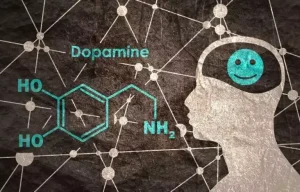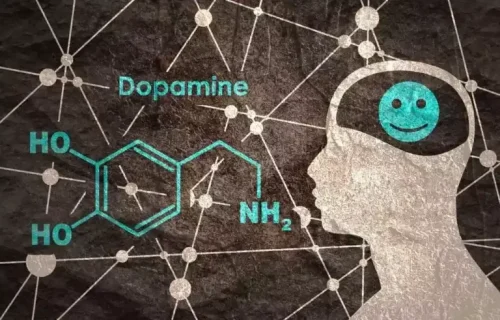
This can contribute to exhaustion, brain fog, and overall lower productivity among workers. Going out for drinks has become a routine for work-related celebration, whether it’s winning a new account or nailing a big presentation. With the rise of coworking spaces, regular beer on tap is advertised as a selling point. Some companies even designate a day of the week for an after-work happy hour.
Tips for Retaining Employees During Addiction Treatment
However, you should take this with a grain of salt because, according to the publication, « it is difficult to know whether the beneficial effects are due to alcohol or other factors, such as lifestyle, education, or diet. » While beer has its health benefits when consumed in moderation, it is important to remember that excessive drinking can lead to serious health issues and negatively impact overall well-being. For individuals, drinking after work can also contribute to the development of alcohol dependence or addiction. While drinking in moderation can have some health benefits, such as reducing stress and anxiety, excessive drinking can have negative consequences on both physical and mental health. Those in the professional class also struggle with substance abuse, possibly fueled by after work drinking.

You could become dependent if you drink beer every night
It’s exactly the kind of beer you’d want after a long day of brewery work.”— Adam Beauchamp, Creature Comforts, Athens, Ga. When it comes to drinking after work, it’s important to be wary of these red flags. If these symptoms begin to develop, it may be a sign that professional help is needed. Having some wine after work to reduce stress can quickly evolve into an alcohol use disorder if a person is not careful. When out with coworkers, indulge yourself and relax with a cold one. There’s beer after work no need to skip it altogether, just follow these tips and tricks for a successful evening.
Having a beer after work: acceptable or undesirable?
However, your favorite brew mostly contains the electrolyte potassium, and you don’t typically lose much of that during exercise, says Susan Kitchen, RD, a board-certified specialist in sports dietetics and an eight-time full Ironman finisher. Instead, you want something that will replace sodium chloride, the main electrolyte you lose through sweat — and beer won’t provide it. « You would have to drink a ton of alcohol to even meet the amount of carbohydrates needed for exercise, » says Wynne.
You may become vitamin-deficient if you drink too much beer every night

A new study from Australia sought to address some of these questions, and so looked specifically at the health effects of moderate drinking among adults age 25 to 36. Rather than compare the moderate drinkers only to abstainers, the study team also compared moderate drinkers to light drinkers, and controlled for exercise habits, mental health status, and other factors that could have muddled their findings. Beer can also interfere with the body’s blood sugar levels, creating hunger pangs and causing people to overeat. Alcohol in beer can also interfere with the liver’s ability to produce glucose, leading to an insulin spike and sleep disturbances. Many of the potentially far-reaching effects of after-work drinking may not immediately come to mind to those who imbibe, but there are unwanted situations that can arise. According to the study, most workers spend about 2 hours drinking after work, which can what is alcoholism extend their day to 11 hours.

Can You Ever Have a Post-Workout Beer?
In moderation, alcohol can help reduce stress and anxiety, which are main causes of premature ageing. Beer, specifically, can provide hydration and may offer health benefits like reducing constipation, lowering cholesterol, and preventing osteoporosis. Regardless of what career you have, there are steps you can take to monitor your after-work drinking.
Stress from Outside Sources

So if you get all your micronutrient needs from your food but at the end of the day you still have a few spare calories left for the day, you can indulge in a Guinness. So if you want to reap the most benefits from your exercise program, chugging a post-workout beer (or two) may not be the best idea. When your muscles are already dehydrated after your workout, drinking alcohol will only dehydrate them even more, ultimately preventing those muscles from rebounding and repairing the way you need them to in order to see fitness gains. This is because it draws fluid into the gut and speeds up the movement of waste through the digestive tract.

These are great ways to build bonds and connections while remaining sober. There are several reasons why a person may want to drink after work. Apart from simply wanting to go out with co-workers or friends, they may drink to cope with the day’s stresses.
- « Too many of any kind of calories, whether they’re from alcohol or sugary foods or just from eating too much food, can increase belly fat, » Daniel Allan, family medicine doctor, told the Cleveland Clinic.
- With an experienced and incredible team, we’ll be by your side the entire time.
- The study found that 14% of respondents stated they’ve acted inappropriately while having drinks after work on at least one occasion.
- Since moving to New York City in 2013 he’s been writing on health and fitness full time for outlets like BarBend, Men’s Health, VICE, and Popular Science.
- However, your favorite brew mostly contains the electrolyte potassium, and you don’t typically lose much of that during exercise, says Susan Kitchen, RD, a board-certified specialist in sports dietetics and an eight-time full Ironman finisher.
- It may sound far-fetched, but drinking beer may just stave off heart disease.
Drinking Do’s and Don’t’s: After Work Drinks with Coworkers
This could have serious repercussions in a work setting, potentially leading to harassment accusations or other issues. Alcohol has been linked to seven types of https://ecosoberhouse.com/ cancer, including bowel cancer, breast cancer, liver cancer, and mouth cancer. Nick is a content producer and journalist with over seven years’ experience reporting on four continents.
Beer is a popular drink worldwide, and its consumption has a long history, dating back several millennia. Interestingly, beer contains soluble fibre, which offers various health benefits, including reducing cholesterol and constipation. However, it is important to note that alcohol can also negatively impact the body in several ways, including dehydration, skin dryness, and weight gain. Alcohol is hepatotoxic, meaning it causes direct damage to the cells in the liver, which are responsible for detoxifying the body.












